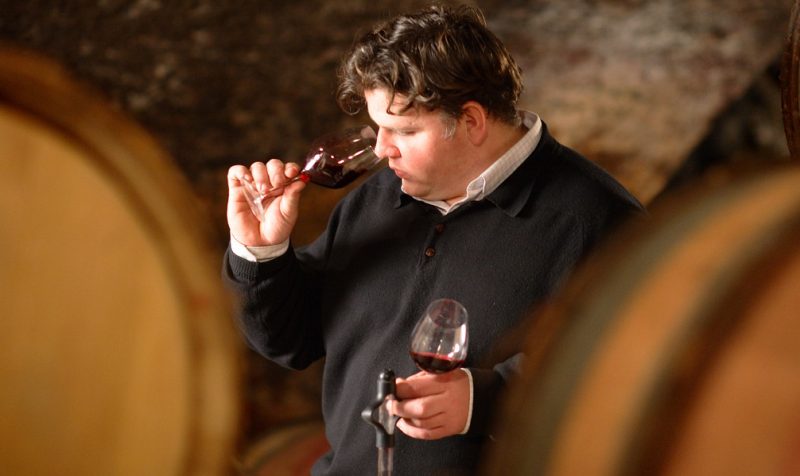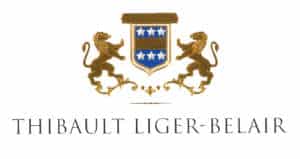About Thibault Liger-Belair
This domaine has been in the Liger-Belair family for ~300 years. In 1720, Claude Marey, the king’s secretary, mayor of Nuits-Saint-Georges, and a vineyard proprietor, founded the C. Marey house to sell his fine wines. His son and grandson took turns running the business, and then in 1852, a nephew, Comte Liger-Belair, proprietor of Grands Crus in Vosne-Romanée, joined as a business partner under the name “C. Marey et Comte Liger-Belair”. The domaine was passed down through the family for the next five generations until 1982, when Xavier Liger-Belair died and the business was sold. That same year Xavier’s son, Vincent Liger-Belair, took over the buildings and restructured the domaine by having three sharecropper winemakers handle the work.
Then in 2001, Vincent’s son, Thibault Liger-Belair, took over the vines as the winemaker and created Domaine Thibault Liger-Belair. Having studied viticulture and oenology for six years in his youth, Thibault started his professional career with a communications firm in Paris where he was able to present and taste wines internationally. Two years later, he started an internet company with the idea of discovering and selling high-quality wines. But the calling of the vines was still strong, so in 2001, at the age of 26, Thibault decided to take over from his father and make wine his true calling and passion.
2002 was the first harvest of the Nuits-Saint-Georges, Nuits-Saint-Georges Charmottes, as well as Vosne-Romanée Aux Reas. In 2003, the domaine enriched its range with Richebourg Grand Cru, Clos Vougeot Grand Cru, Vosne-Romanée Premier Cru Petits Monts, and Bourgogne Rouge. In 2009, the domaine expanded into Beaujolais, and now produces a Beaujolais-Villages and several Moulin-à-Vent Cru wines. Additional Burgundy vineyard holdings have been added in recent years, greatly expanding the range.
His approach is very natural, intellectual, and creative. Upon taking control in 2001 Thibault immediately implemented organic farming, and in 2005 was fully biodynamic. Vineyards in different appellations are cultivated and worked in different ways according to their soil and climate. The richness of the terroirs demands that each individual parcel has to be worked uniquely, rather than systematic work as is often done. The role Liger-Belair imposes on himself consists of “listening” to the vine and observing it closely. His responsibility is to better answer its needs and thus to help it realize all its natural potential – not to require that it produce large quantities of grapes but to produce a limited quantity of exceptional quality.
The domaine recently moved into a brand new winery building, designed from the beginning to be extremely eco-friendly, with several innovations. A huge sundial erected in the car park provides solar electricity, enough to run the air-conditioning all year round. The walls are naturally insulated and there is even a log burner so that they do not need to heat the interior using electricity. The lights are specially designed to mimic natural luminosity and even the air is naturally pure.
Thibault Liger-Belair’s winemaking philosophy begins with bringing the grapes to the winery in an irreproachable sanitary state and handling each operation delicately. He aims to infuse instead of extract. His belief is that the less one mistreats the grape, the better the wine shall be. Some whole cluster fermentation is employed, with more or less depending on vintage, and the Grand Cru vineyards seeing a higher percentage than the villages-level wines. He carefully selects oak according to its texture and origin and imposes a three-year drying period which yields superior tannin quality, making them much silkier and delicate. Rarely is more than 50% new wood used at Domaine Liger-Belair. The wines are aged according to their appellations, between 14 and 18 months, without racking or any other aeration. They are neither fined nor filtered.
He even sources his own sulfites from a mine in Poland that are much more natural than those traditionally employed through industrial production. These integrate more easily than standard SO2, allowing the wines to remain more “open” and contributing energy.
Thibault Liger-Belair is a fantastic representative of the “next generation” in Burgundy, whose return to more natural farming and winemaking techniques are yielding delicious, vibrant and age-worthy wines their ancestors would be most proud of.



We are not here for ourselves. We are here for the future.